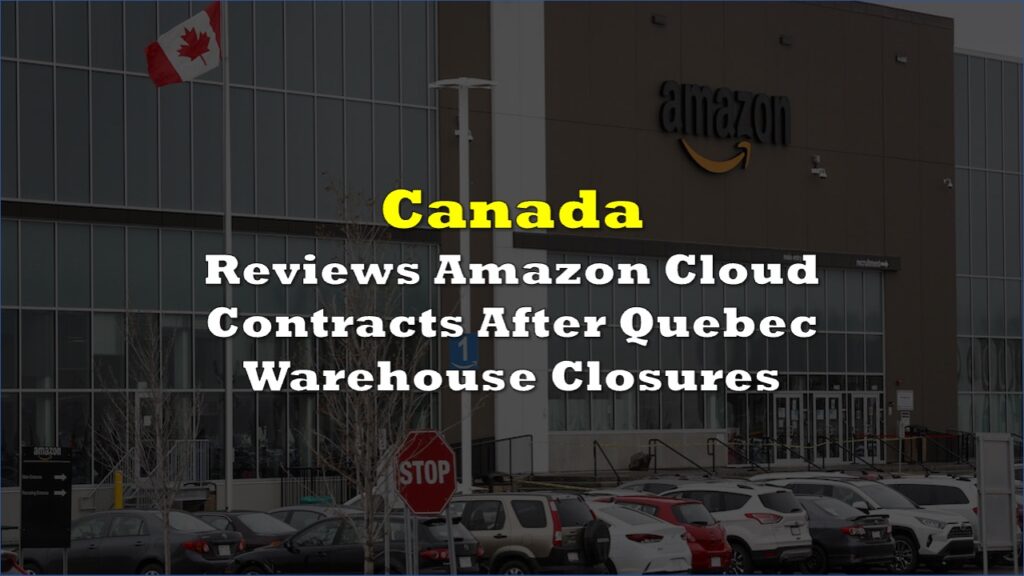Deep Dive recurring character Francois-Philippe Champagne, Canada’s Minister of Innovation, Science and Industry, has been a frequent news feature this month, after exhibiting perhaps the dumbest and most embarrassing episodes in his ongoing to failure to understand or execute his job.
We last visited with our favorite Liberal cabinet minister this past October, when the country and its media were trying to square the fact that expensive Canadian groceries cost so much more all the time with the fact that three companies control most of the grocery market, and they all make gobs of money.
It’s as if they’re running their organizations to benefit their shareholders!
We made fun of the little guy back then for gushing about how constructive a meeting between the Liberal cabinet and grocery executives was. They all told him they would deliver a plan to stabilize grocery prices by Thanksgiving, committed to nothing and probably had a good chuckle on the way to the parking lot.
It isn’t clear if any of them actually did their homework. Thanksgiving came and went, no plans were released to the public, groceries are still expensive, and Metro, Loblaw and Empire have made some even bigger gobs of money since then. In response, our Ministry of Innovation, Science and Industry has… penned a strongly worded letter!
Not to the grocery executives, of course. Cause any friction there, and they might never invite him golfing! The letter was to Matthew Boswell, Commissioner of the Canada Competition Bureau, expressing FPC’s “disappointment” that the grocery companies didn’t cooperate with the CCB this past summer, while it was conducting a study about whether or not food costs so much because of a lack of competition.
The CCB’s report, released this past June, found just that. There is a distinct lack of competition amongst the three major grocery chains, who have been known to leverage their real estate positions to keep each other from opening rival stores in their neighborhoods. FPC’s complaint, seven months later, that the Competition Bureau should make better use of its subpoena powers is curious. The only reason to bring it up now would be to muddy the waters and shift the blame, and what a weird shift! The whole country is lining up to hang grocery executives, and the Minister is trying to redirect the heat at his own ministry’s investigative agency.
FPC’s letter writing campaign also reaches out to foreign grocers, inviting them to come set up shop in Canada. It isn’t clear which foreign grocery execs he’s been calling, or why any of them would care to come fight three established chains on their home turf, plus US giants Walmart and Costco, for the smallest consumer market in the G7, strung out over the widest geography.
But it’s becoming increasingly clear why FPC thinks it would work: he’s a sucker.
Commenting recently on a deal that will make prescriptions covered by Manulife, Canada’s largest insurance company, available only at Loblaws-owned pharmacies, FPC practically told on himself:
“They don’t get the message. We want more competition in this country… we want more choices, so that’s not the direction we want to see.”
-Francois-Philippe Champagne
Clearly, Minister Champagne is labouring under the misconception that Canada’s grocery merchants have some kind of responsibility to the country, and care to put its interests ahead of those of their shareholders, or consider them at all. They don’t, but we can’t blame them for leaving the credulous Minister of Industry with that impression.
When BHP CEO Mike Henry came to Saskatchewan in 2022 to open the Jensen potash mine, Champagne was so excited about the $7.5 billion BHP was investing in the project that he gave them $100 million in taxpayer money to develop a fleet of electric mining trucks, and gushed all over him.
Jensen is expected to produce 4.35 million tonnes per year of potash once it’s at capacity which, at a trailing five year average of the spot price, would gross about $2.1 billion per year, for 94 years. It doesn’t need $100 million to electrify its fleet or for any other reason. It certainly isn’t going to decide to go and develop some other generational fertilizer reserve instead if the government doesn’t bend over backwards for them, because there isn’t one.
Never give a sucker an even break
Between the Shaw-gers merger, grocery companies ignoring him, and Loblaws just flat out carving itself off a chunk of the drug market, it’s obvious to everyone but FPC that he’s being taken advantage of. That would be kind of pathetic if he were a soft home room teacher who lets the kids slack off because they make him feel cool, but it’s infuriating when the stakes are the country’s economy.
Champagne clearly understands that his constituents think there’s a grocery cost problem, but is more worried about how their mounting ire might affect the partners in industry that he considers vital pillars of our economy.
They aren’t. They’re objectively leeches on the economy, and if he wasn’t so religiously devoted to capital enterprizes, he might be able to fix the food cost problem AND the economy, by cancelling for-profit grocery all together. We’ve written extensively about how capital tends to camp on sure things like food, fuel, telco, and housing. Why wouldn’t it?
In fact, so much of the “at risk” capital in this country is camped on low-risk, high-rent enterprizes like grocery, the type of innovation that is urgently necessary from a climate standpoint has to be funded by government agencies like Sustainable Development and Clean Tech Canada, which operates under the supervision of Champagne’s Ministry of Innovation, Science and Industry. You may remember it from the $100 million it gave to cleantech startup BHP.
SDCT isn’t presently giving money to anyone. All of its deals have been frozen until they sort out an unfolding scandal that whistleblowers allege had it operating like a corporate ATM, which is how these things generally go. Come to think of it, FPC probably doesn’t see the problem.

The ministry doesn’t need further study to determine if grocery company profits are making groceries more expensive: either the cost of the shareholders’ dividends are in the groceries, or they aren’t.
The $60 billion or so worth of capital presently bleeding Canadians for their grocery money could and should be chased up the risk curve, where it can try and make a buck by creating something new. A minister of industry who understood industry would try and find ways to chase the rent seekers in real estate and energy up the risk curve the same way.
But this guy is too busy writing them checks.
Information for this briefing was found via Sedar+, Reuters, Globe and Mail, and the sources mentioned. The author has no securities or affiliations related to the organizations discussed. Not a recommendation to buy or sell. Always do additional research and consult a professional before purchasing a security. The author holds no licenses.









